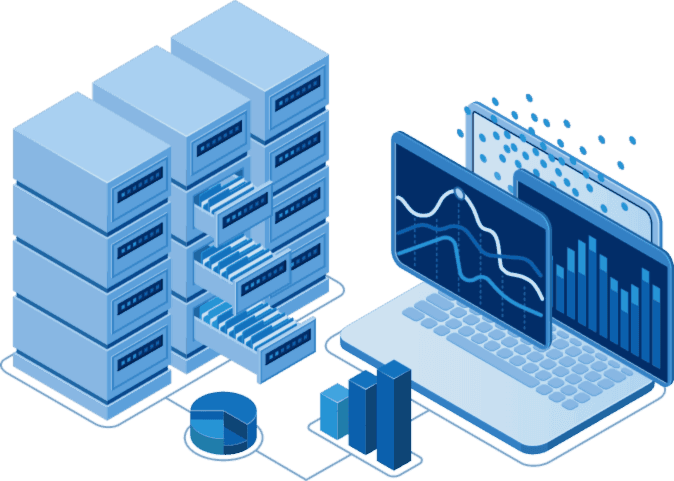HIPAA EDI: Transactions sets in the Healthcare Industry

LIKE.TG 成立于2020年,总部位于马来西亚,是首家汇集全球互联网产品,提供一站式软件产品解决方案的综合性品牌。唯一官方网站:www.like.tg
The Health Insurance Portability and Accountability Act (HIPAA), established in 1996, keeps individual health information private. It introduced HIPAA EDI (Electronic Data Interchange) Standards to secure electronic health data sharing among healthcare providers, insurers, and related entities.
Healthcare EDI sets rules for how data should be formatted when electronically exchanged to ensure secure and efficient communication and reduce manual tasks.
EDI allows healthcare providers to electronically manage tasks like billing, claims processing, and record-keeping, making these processes smoother while complying with HIPAA rules.
How Are EDI and HIPAA Related?
EDI and HIPAA are interconnected and work closely to ensure the secure exchange of data, improvement in healthcare operations, and uninterrupted flow of information between various parties.
Secure Data Exchange
EDI supports the secure sending of healthcare data using encryption methods like SSL (Secure Sockets Layer) or VPN (Virtual Private Network). This encryption keeps patient data safe from unauthorized access while it’s being sent. It also ensures seamless communication between healthcare providers and insurance companies using secure protocols like AS2 and SFTP.
Using EDI for sending sensitive data helps healthcare organizations reduce the risk of data breaches and meet the requirements of the HIPAA Security Rule. The HIPAA rule ensures patient information stays private and safe throughout the exchange process.
Smooth Healthcare Operations
EDI makes healthcare operations more efficient by automating processing claims and checking eligibility. For example, when a claim is sent electronically through EDI, the system automatically checks the data for errors and confirms the patient’s eligibility for coverage. This automation speeds up reimbursements and reduces errors that could cause claim denials or delays.
EDI allows for instant communication between healthcare providers, insurers, and others. This quick information exchange improves coordination and speeds up decisions.
What Is the HIPAA EDI Document Standard?
The HIPAA EDI standard is a set of rules specifying the format for data transmission. It ensures that everyone, from healthcare providers to insurance companies, understands and uses the same process when sharing patient records or insurance claims.
This EDI standard focuses on protecting patients’ information by using electronic secure formats like digital encryptions. It also speeds up the process compared to handling paperwork, as automation allows faster transmission and processing of healthcare transactions.
The HIPAA EDI standard often uses X12N, a standardized language with specific rules for structuring information like patient ID numbers and service codes. This standardization ensures that all healthcare providers and insurers understand each other clearly and securely.
Different HIPAA EDI transaction sets
HIPAA requires that all healthcare providers follow specific EDI standards to dispatch protected information like claims, check eligibility/reimbursement, and provide payment instructions. This standard ensures secure and standardized transmission of data. Organizations in the healthcare industry use multiple EDI transaction sets.
-
837 Healthcare Claim Transaction Set
Healthcare providers use the EDI 837 Health Care Claim Transaction Set to send billing and service information for all healthcare claims, except for retail pharmacy claims. They can send these details directly to insurance companies or through billing services and claims processing centers. The system also helps manage claims and payments between insurance companies when patients have multiple insurers. This transaction set aids in reporting to government agencies that monitor healthcare billing and payments, making submitting and tracking healthcare claims easier.
-
835 Healthcare Claim/Payment/Advice Transaction Set
Through the Healthcare Claim Payment/Advice Transaction Set, insurers pay healthcare providers and send Explanation of Benefits (EOB) and remittance advice.
-
834 Health Insurance Exchange Enrollment Transaction Set
The EDI 834 Benefits Enrollment and Maintenance Set allows employers, unions, government agencies, insurance agencies, associations, or healthcare organizations to enroll members in benefit plans.
-
820 Payroll Deducted and Other Group Premium Payment for Insurance Products Transaction Set
The Payroll Deducted and Other Group Premium Payment for Insurance Products transaction facilitates premium payments and sends information to financial organizations.
-
270 Healthcare Benefit Eligibility/Inquiry Transaction Set
Healthcare institutions use the Healthcare Eligibility/Benefit Inquiry to ask about benefits and subscriber eligibility.
-
271 Healthcare Benefit Eligibility Response Transaction Set
The Healthcare Eligibility/Benefit Response replies to healthcare benefits and eligibility inquiries.
-
276 Claim Status Request Transaction Set
Healthcare providers use the Healthcare Claim Status Request to check the status of healthcare claims submitted to an insurer.
-
277 Status Request Response Transaction Set
The Healthcare Claim Status Notification allows healthcare payers or their agents to update providers, patients, or their agents about the status of a healthcare claim and request more information. This method doesn’t replace the payment advice process and doesn’t manage payment postings. Notifications can detail overall summaries or specific services and may be given when requested.
-
278 Healthcare Review Transaction Set
Hospitals use the Healthcare Service Review Information (278) to request service authorization from an insurer.
-
997/999 Implementation Acknowledgment Transaction Set
This transaction set is important for acknowledging the outcome of analyzing electronic documents’ syntax, even though the HIPAA laws don’t specifically list it. It’s essential for X12 transaction sets, organized into groups for business data interchange. But this set needs to explain the meanings of the information in these documents.
Enable Secure EDI Information Exchange with LIKE.TG
HIPAA EDI transactions offer clear benefits. They enable the secure transfer of sensitive patient data, benefiting patients and healthcare professionals. HIPAA EDI also ensures compliance with regulations and other laws and streamlines healthcare communication.
The best way to experience these advantages is to leverage software that automates managing EDI transactions, saving valuable time and resources while ensuring continued accuracy and security.
LIKE.TG EDI Connect provides a secure environment for exchanging data, transforming it into a usable format, and ensuring its accuracy. It facilitates the secure healthcare data exchange using HIPAA-compliant X12X5010 and HL7 standards. This allows hospitals, labs, and doctors to electronically share vital information like lab results, medical records, and patient admission details.
LIKE.TG automates the process of loading, validating, and transforming data following industry standards like X12, EDIFACT, or HL7. It also allows organizations to create EDI messages that strictly adhere to these standards, guaranteeing that partners understand them.
Schedule a demo today to maintain consistency and reliable execution of EDI transactions.
Transform Your Healthcare Operations with LIKE.TG EDI Connect
Discover how LIKE.TG transforms healthcare operations with secure, efficient data exchanges. Automate billing, claims processing, and more while safeguarding patient privacy. Explore our HIPAA-compliant solution for seamless integration and compliance today.
Start a Free Trial
现在关注【LIKE.TG出海指南频道】、【LIKE.TG生态链-全球资源互联社区】,即可免费领取【WhatsApp、LINE、Telegram、Twitter、ZALO云控】等获客工具试用、【住宅IP、号段筛选】等免费资源,机会难得,快来解锁更多资源,助力您的业务飞速成长!点击【联系客服】
本文由LIKE.TG编辑部转载自互联网并编辑,如有侵权影响,请联系官方客服,将为您妥善处理。
This article is republished from public internet and edited by the LIKE.TG editorial department. If there is any infringement, please contact our official customer service for proper handling.


















